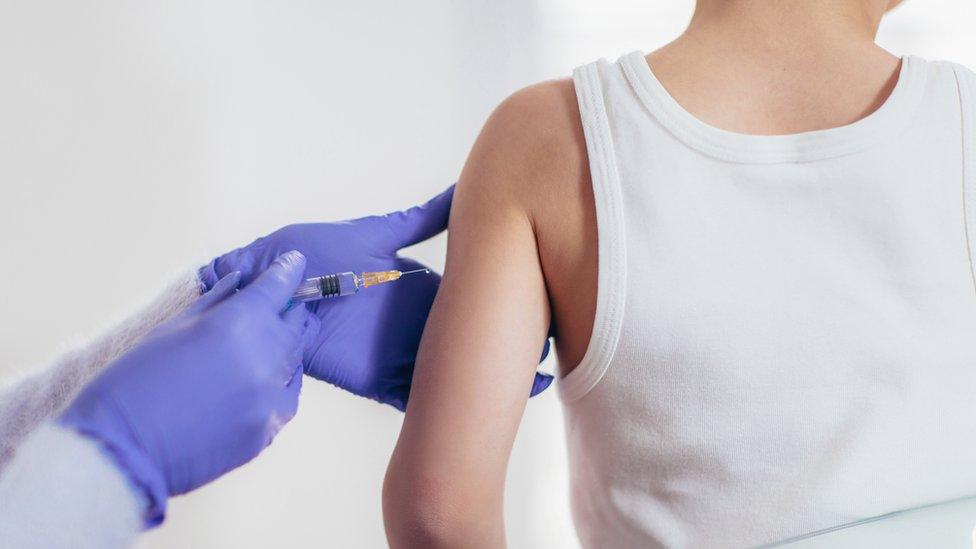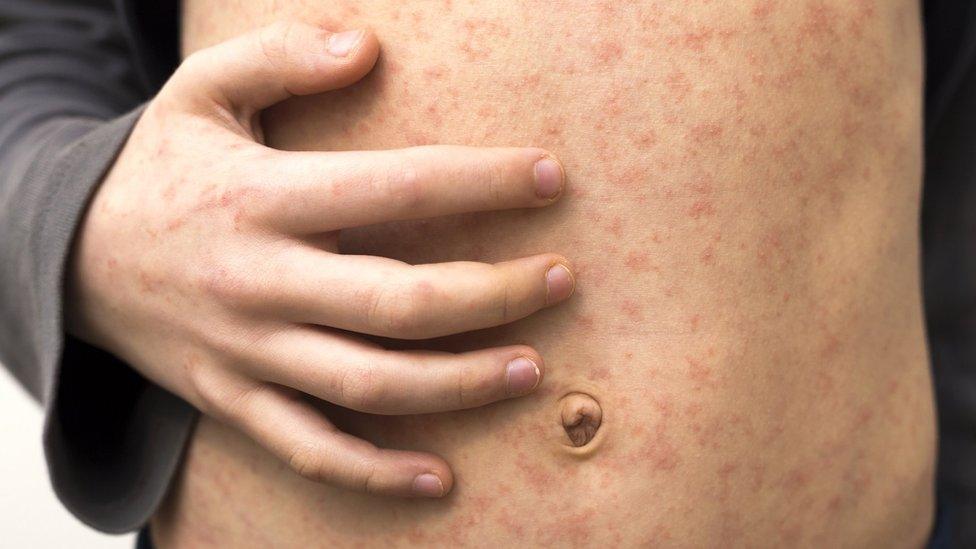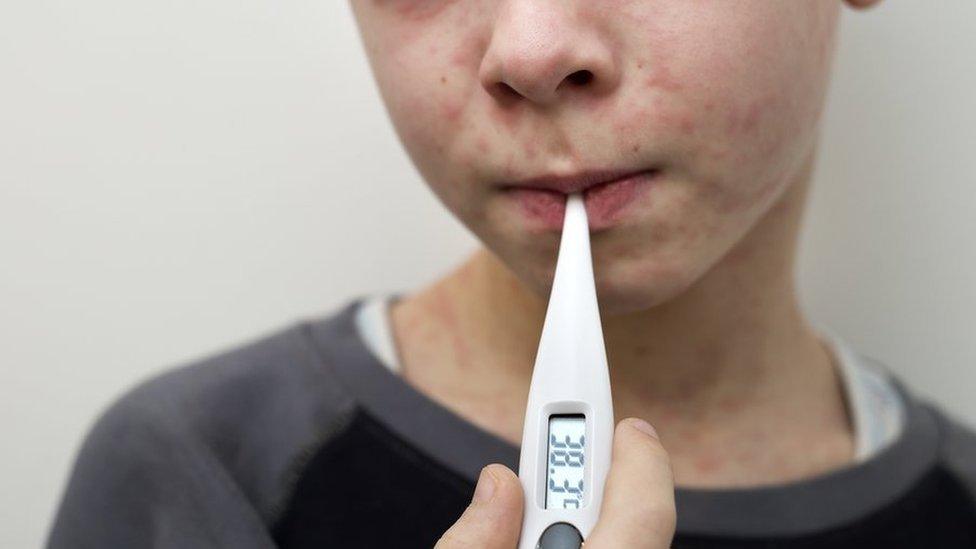Coventry pop-up MMR vaccine clinics double school's take-up
- Published

The Measles, Mumps and Rubella (MMR) vaccination is given in two doses
A school which held pop-up clinics for the Measles, Mumps and Rubella vaccine (MMR) has seen the number of pupils vaccinated more than double.
Health officials were told 87% of pupils at the Coventry school, one of the city's most diverse primaries, had now had the jab, up from 40%.
Pop-up sessions will now take place at all secondary schools and 21 primary schools in the city to boost rates.
It follows a rise in measles cases locally and nationally.
In January, health officials said the West Midlands was experiencing its highest number of measles cases since the mid-1990s.
In Coventry, the number of cases rose from zero in October to 26 cases last month.
Non-pork vaccine 'game-changer'
Public health consultant Lily Makurah from Coventry City Council has said the council, NHS and partner community organisations had been sharing the message that having two doses of the MMR vaccine provided the best protection against the disease.
She also told the council's health meeting, on Wednesday, that while for many people accessing their GP "works" they were considering using the pop-up school clinics approach more long-term.
"Especially if.. someone's working on minimum wage or in an hourly job and they have to take their child out of school and do fewer hours so that they can go," she said.
In addition, she said in Coventry the only vaccine offered was effectively one without pork products in which she called "the game-changer".
"Very early on we lobbied that actually we should for our area only be ordering in the version that is porcine free - so that is suitable for anyone who doesn't touch pork," she said.
Ms Makurah added once health officials had made sure it was in place both in GP clinics and the pop-ups they would ensure this was communicated to residents.
The council's director of public health, Alison Duggal, told councillors the Covid-19 pandemic was among factors that had led to lower vaccination rates.

This news was gathered by the Local Democracy Reporting Service which covers councils and other public service organisations.

Follow BBC West Midlands on Facebook, external, X, external and Instagram, external. Send your story ideas to: newsonline.westmidlands@bbc.co.uk, external
- Published27 February 2024
- Published11 January 2024

- Published25 July 2023

